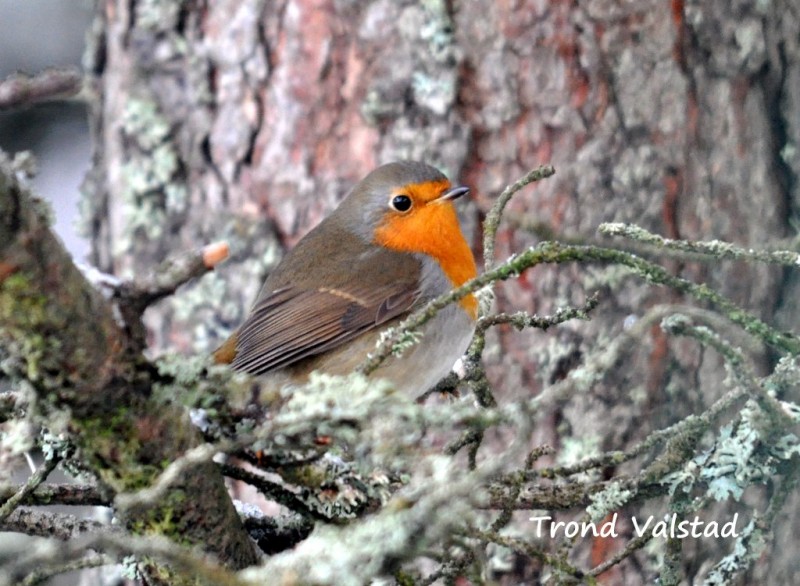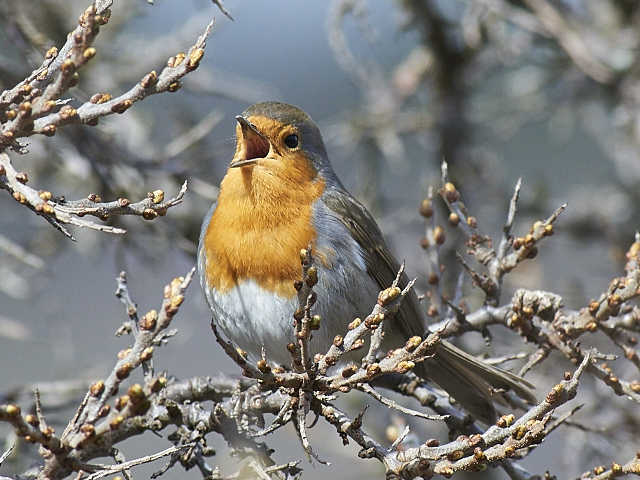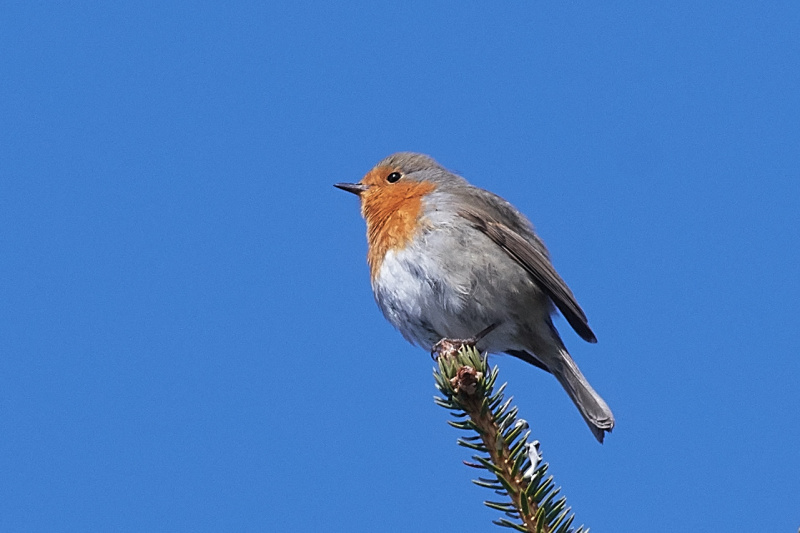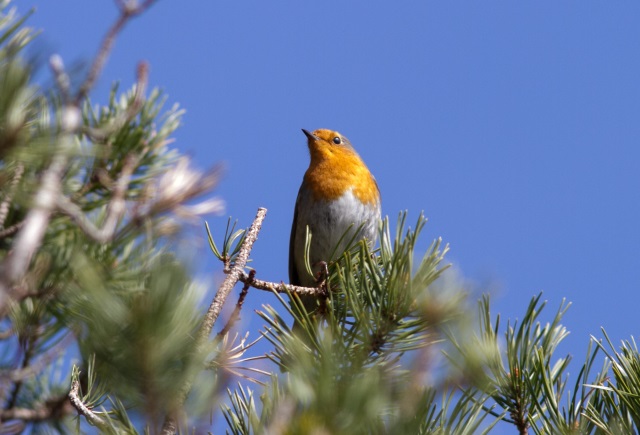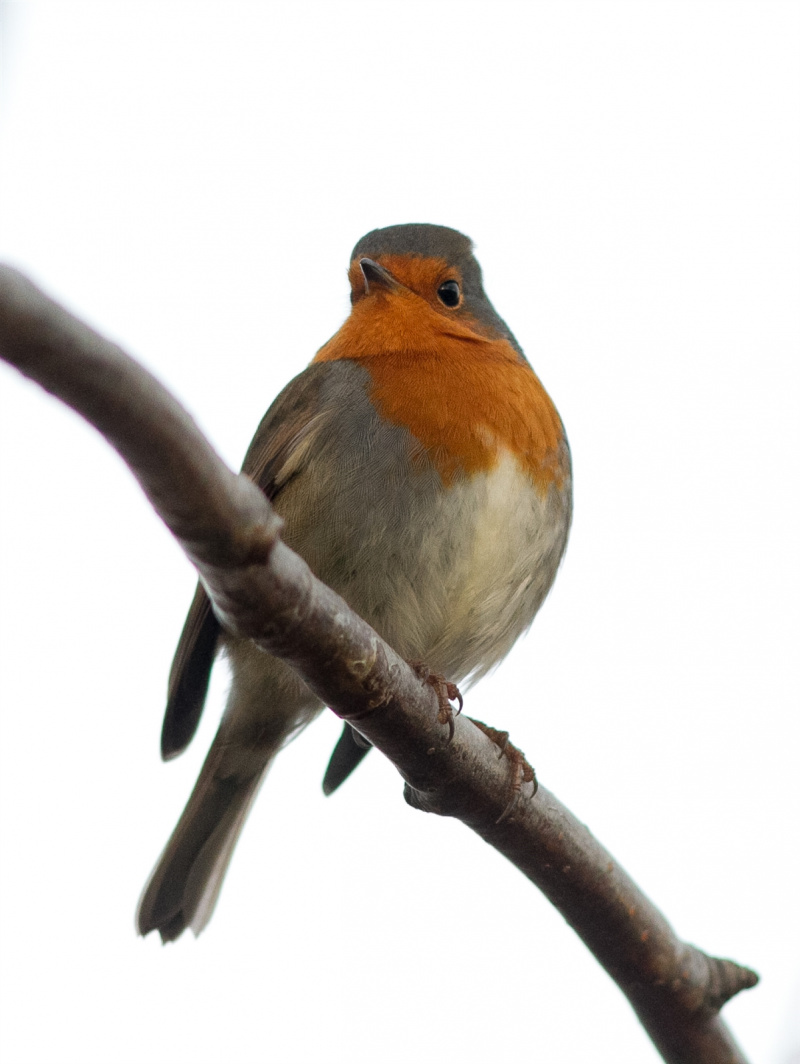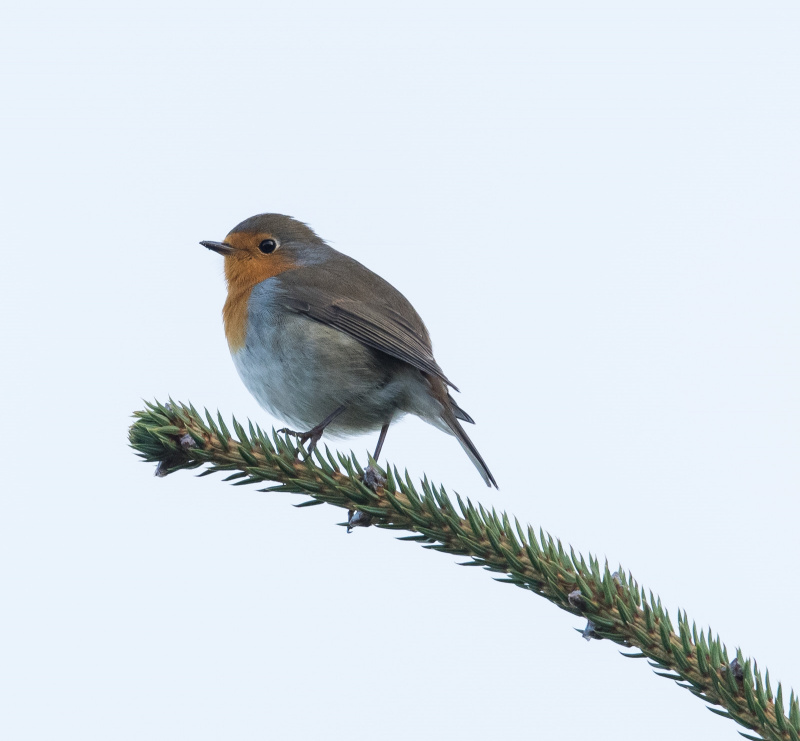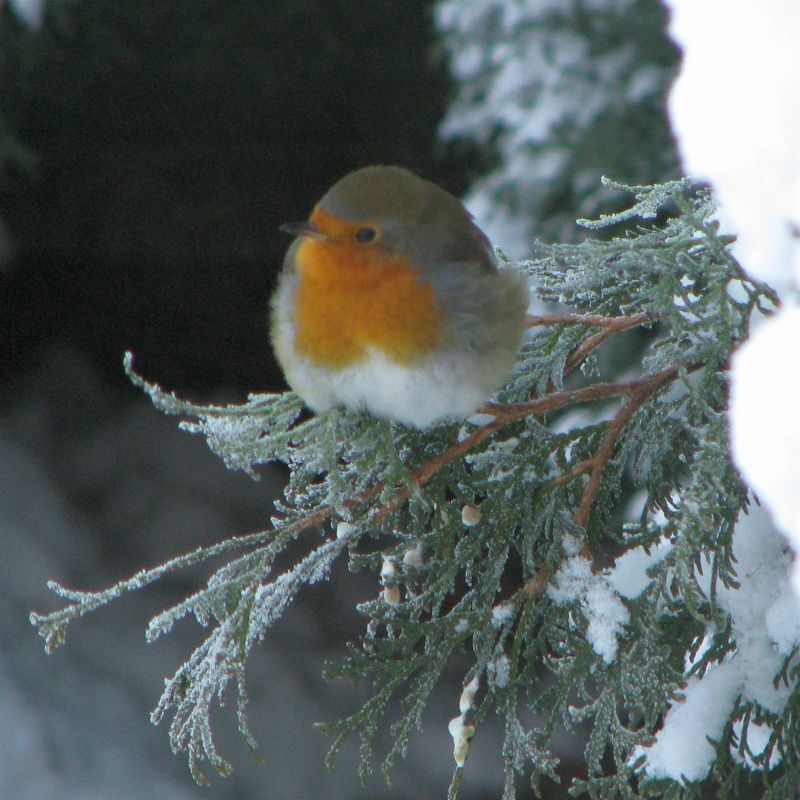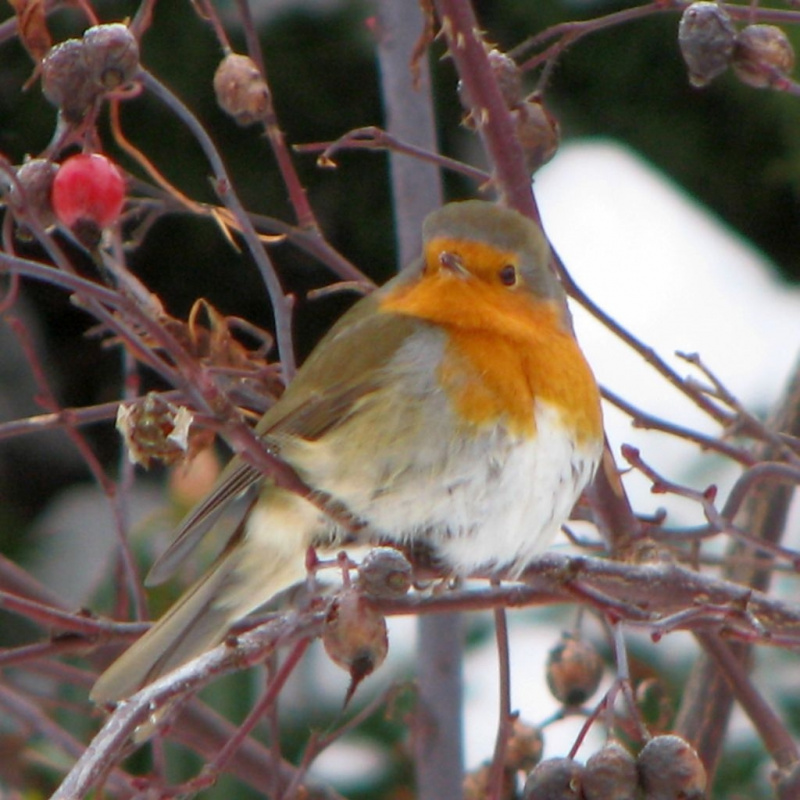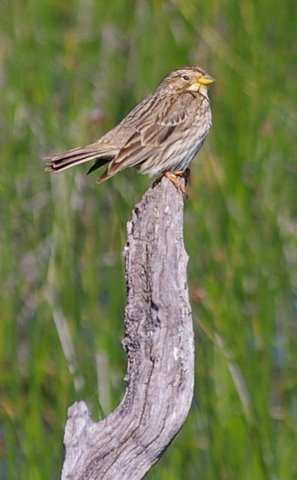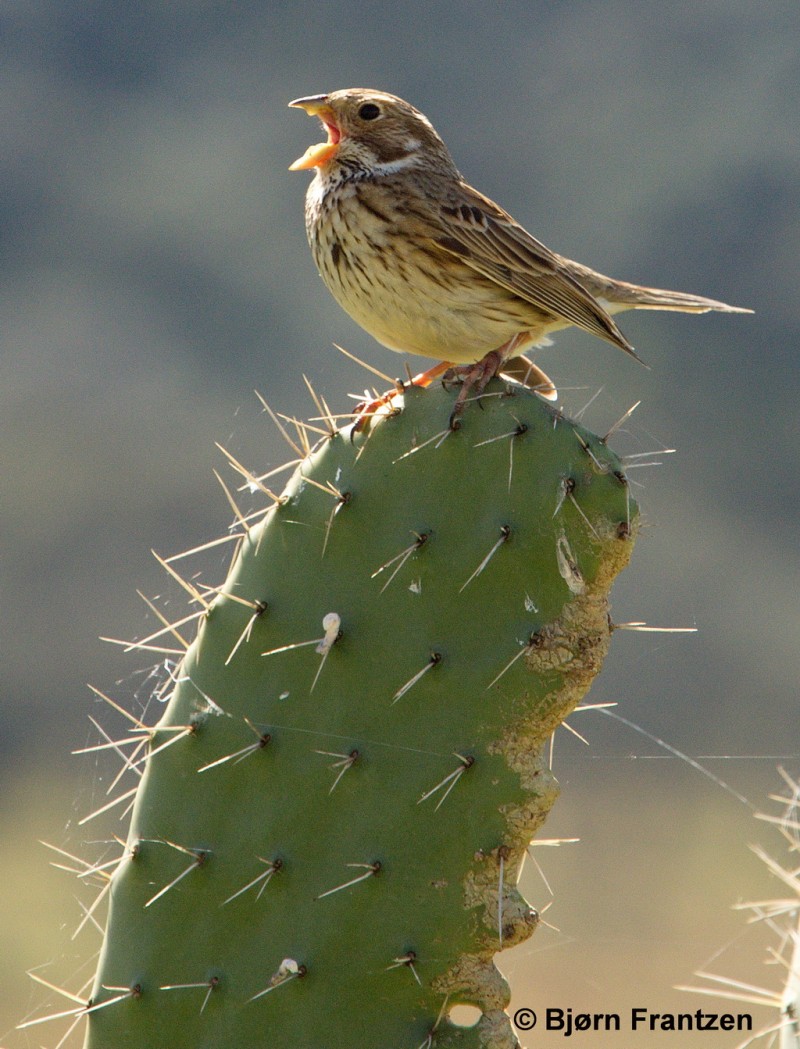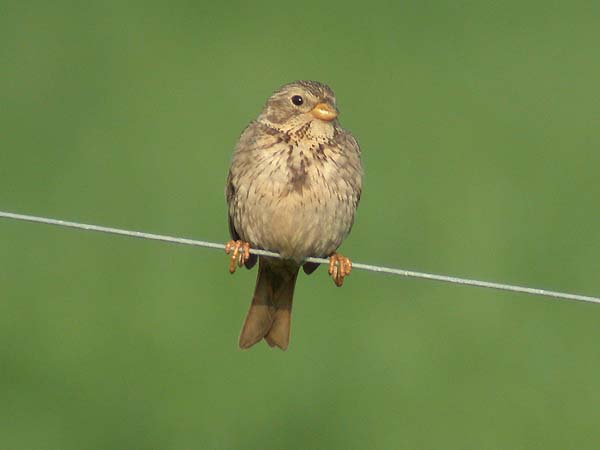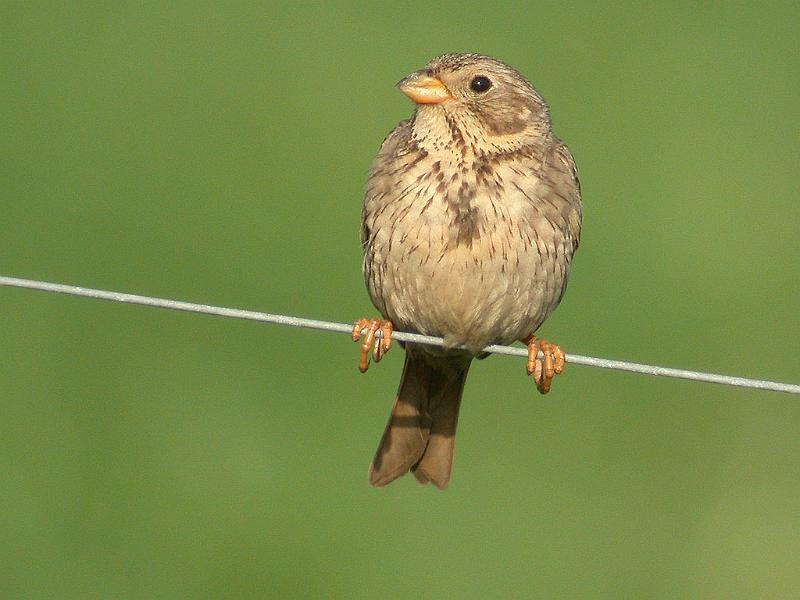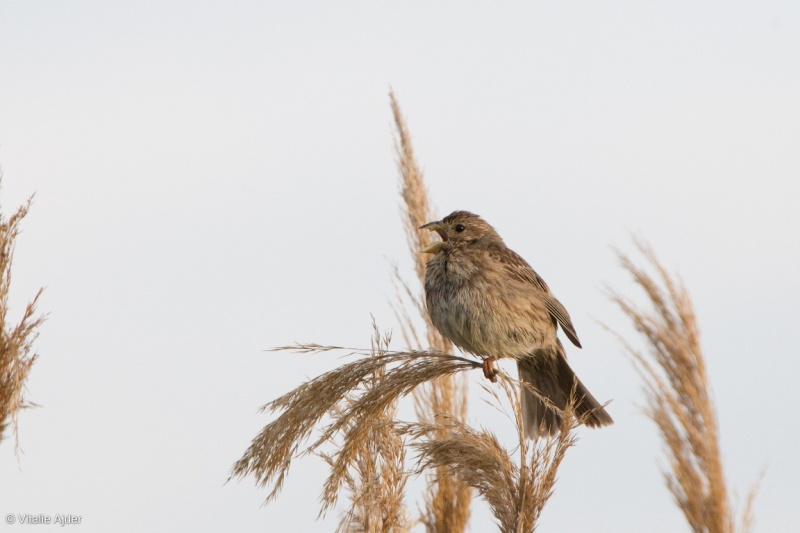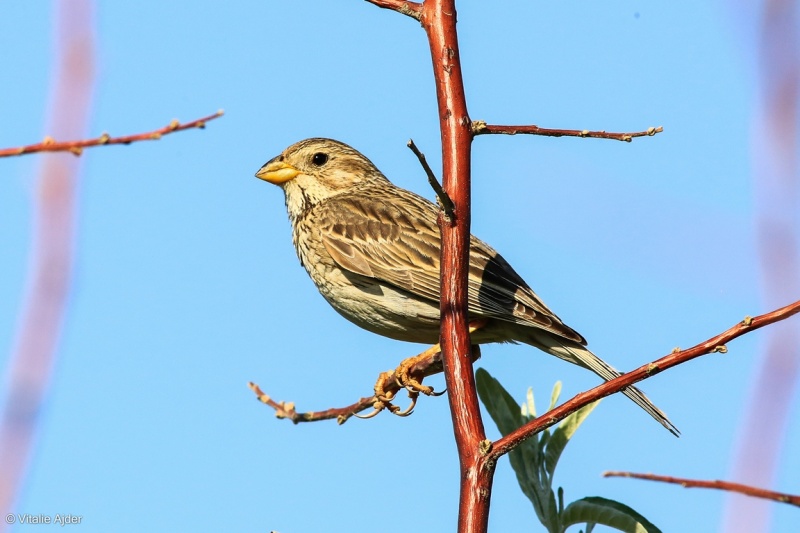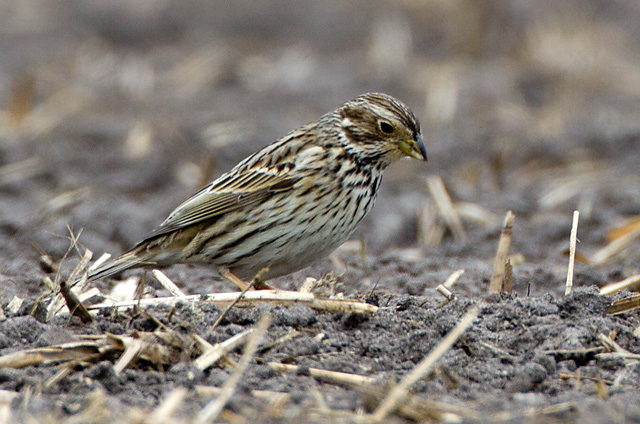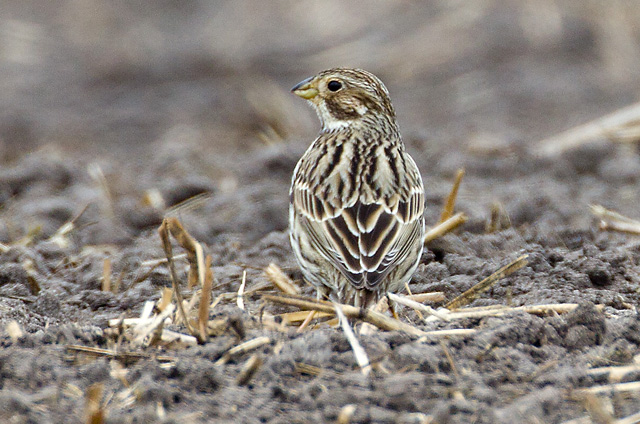Robin (Erithacus rubecula)
Corn Bunting (Emberiza calandra)
Rufous red face, throat and chest, framed in slate grey in adults of both sexes. Olive brown to grey upperparts and dull white underparts. Head rather large, and body rather stocky when plumage puffed, despite thin bill and slender legs. Juveniles lack the red front and are heavily spotted in buff on a dark brown body with barred chest. Adults pretty unmistakable when seen well. Flight usually low and darting, with quick changes of directions before disappearing in thick bushes. Posture usually erect with frequent flicking of tail and wings.
Sound:Alarm call a thin, electric "tick", often in series with decelerating tempo. Song medium to very high pitched, with mostly clear tones with a liquid quality. Timbre reminiscent of Wren or Dunnock, but with a much more varied structure and tempo. Pitch ranges from very high to low, almost thrush-like, notes. No recognizable motifs. Often ends on a rising or falling pitch, giving it a "Chinese" accent.
Song:
Distribution:
Wikipedia: map (se also Xeno-canto below)
Ecology:Birdlife ecology
Links:
Observation.org Latest observations
Image search Flickr NB! May give other species
CCA featureless, bulky bunting. Larger than Yellowhammer, but with a shorter tail. Combination of size, build, flight-pattern and sound important for identification. Recalls the bigger larks in build. Takes off with a loose and surging flight, often with legs dangling underneath. Undulations particularly strong just before landing. Wings dark, and tail without white feathers or markings. "Tooth" in upper mandible visible at close range when singing. Bill and legs yellowish pink. Often shows an indistinct, dark breast patch.
Sound:Song diagnostic. A brittle, jingling and accelerating phrase of about 2 seconds duration. Repeated in a monotonous manner, to form a typical soundscape of fields where it is numerous. Often compared to the sound of a chain of small keys. The phrase starts with a few staccato, ticking sounds that progress into a dry trill, followed by a short ritardando. Calls with a dry "chep" or a brittle "vitt".
Song:
Distribution:
Wikipedia: map (se also Xeno-canto below)
Ecology:Birdlife ecology
Links:
Observation.org Latest observations
Image search Flickr NB! May give other species
CC
 English
English Albanian
Albanian
 Armenian
Armenian
 Bulgarian
Bulgarian
 Catalan
Catalan
 Croatian
Croatian
 Czech
Czech
 Danish
Danish
 Dutch
Dutch
 Finnish
Finnish
 French
French
 Georgian
Georgian
 German
German
 Greek
Greek
 Hungarian
Hungarian
 Italian
Italian
 Latvian
Latvian
 Lithuanian
Lithuanian
 Macedonian
Macedonian
 Norwegian
Norwegian
 Polish
Polish
 Portuguese
Portuguese
 Romanian
Romanian
 Russian
Russian
 Sami : Lule sami
Sami : Lule sami
 Sami : North sami
Sami : North sami
 Sami : South sami
Sami : South sami
 Scientific names
Scientific names
 Serbian
Serbian
 Spanish
Spanish
 Swedish
Swedish
 Ukrainian
Ukrainian


